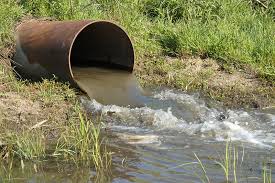When properly designed, operated and maintained, a wastewater collection disposal system functions to protect public health and provide pollution control. The effective collection, treatment, and disposal of wastewater through well-managed public infrastructure contribute directly to the quality of water in lakes, streams, rivers, watersheds and other water bodies.
Aging collection system infrastructure can allow rain to enter the sanitary sewer systems. During heavy rains, it is possible for influent flows (debris and contaminants/pollutants) to exceed the capacity of treatment plants. Controlling these flows to ensure the continued operation of the treatment process and to prevent backups and overflow from raw wastewater in basements or on city streets is a key infrastructure management responsibility. Effectively managing wastewater collection and disposal assets require resources. These resources initiate functions to perform infrastructure inventories, develop system maintenance planning, ensure safety and training for efficient operation, manage overflows, conduct routine inspection and repair, evaluate source flow, assess the structural condition and hydraulic capacity of the system, and develop standards for design and repair.






